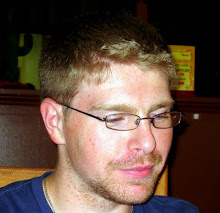The Theocratic War
This nation within the last decades has been in the middle of a faith revival, particularly, Christian, which is absolutely fine. However, our Senators deem it now of national importance to know the faith of a Supreme Court nominee and that is simply unconstitutional. Moreover, we, as citizens, vote for government officials based on their religious/spiritual beliefs or either the absence of those beliefs, and again, it is simply unconstitutional.
If one disagrees with me, just research and read the last paragraph of Article Six of the U.S. Constitution. Yet, let me save one the energy of seeking out the old dusty text, “The Senators and Representatives before mentioned, and the Members of the several State Legislatures, and all executive and judicial Officers, both of the United States and of the several States, shall be bound by Oath or Affirmation, to support this Constitution; but no religious Test shall ever be required as a Qualification to any Office or public Trust under the United States.”
Many look around and wonder how we have gotten ourselves to this polarized governmental situation: Democrats (Left), Republicans (Right).
I disagree with many Democrats (mostly the extreme liberals, as I do with the radically conservative Republicans), yet it is not based on the same grounds that most Americans do. According to former U.S. Senator Gray Hart (D-Colo.), many Americans view the Democrats as immoral human beings.
With that particular stereotype pushed on our minds daily, we then begin to believe Left equals Evil, so then Right equals Right; there enter the Republicans.
Many vote Republican for their personally religious beliefs (specifically, Protestant Christian beliefs), instead of voting for the best candidate for the task. That goes for the followers of the Democrats as well. That is the root, now, of the polarization problem our nation faces, religion dictates our politics. Yet again, that is simply unconstitutional; furthermore, within the next decade or two, it will play out before our very eyes.
Because we live in, as the CIA Factbook states, a “Constitution-based federal republic [with] strong democratic tradition,” we live in a stark contradiction.
In a republic citizens’ possess natural rights, which are protected (in our case) by the Bill of Rights, and the minority’s rights are the priority--hence, the filibuster.
In a democracy the majority rules; 51 percent is all that is needed. Additionally, any rights for the minority are civil rights--more or less, just privileges--granted by a condescending majority. The reality of a democracy is it is a dictatorship of the majority.
The majority of the group voting republican for religious reasoning actually push for a majority-rules democracy, while the ones voting democrat want a minority prioritized republic. I find that ironic.
Here is my weekly column for The Parthenon. Firstly, I did not title this column. The Parthenon is not the New York Times--where the columnists have the privilege to write their only titles. However, it is fine; I cannot wait to see next week's follow-up title. Secondly, I want people to praise or condemn my thoughts and words. At least, those people will read and ruminate and digest (to some degree or another). Lastly, if the Managing Editor of The Parthenon, Rasmi, ever reads this blog, I want her to know I hold nothing against her; it is the newspaper process, which I have a problem with, and maybe in a future column, I will write on the commercialism of that process.

